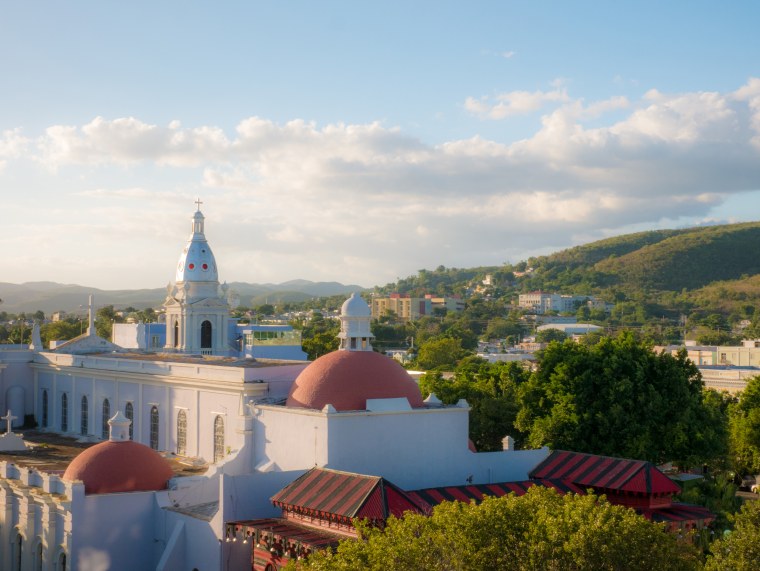Latino historic places in Texas and Puerto Rico are among the nation's eleven most endangered sites facing the risk of destruction or irreparable damage.
The possible destruction of both Ponce, Puerto Rico's historic district and the Alazan-Apache Courts in San Antonio, Texas stand to erase decades of Latino history in the U.S. if they are not preserved, according to the nonprofit organization National Trust for Historic Preservation.
The Alazan-Apache Courts, the oldest and largest extant public housing complex in San Antonio, "represent a part of Mexican American history," said the National Trust for Historic Preservation in a press release.
The San Antonio Housing Authority is planning to demolish the Alazan-Apache Courts, also known as Los Courts, as early as 2022 to make way for mixed-income housing.
Los Courts provided affordable housing to many Mexican American families during the early 1940s when they struggled with poverty, lack of municipal services, severe flood conditions and high death rates at a time when housing, schools as well as other public buildings were legally segregated.
The complex currently provides housing to about 1,700 low-income residents in San Antonio.
"There is a great urgency to ensure that we preserve and revere the places that tell the full, true history of the United States,” said Katherine Malone-France, the Trust’s chief preservation officer, in a statement. "Preservation is a way of reaffirming our commitment to each other because it is a tangible way in which we demonstrate respect for one another’s contributions to our shared heritage."
A string of continuous earthquakes and tremors have caused extensive structural damage to the historical district of Ponce, Puerto Rico — known for its late 19th and early 20th century architecture. The earthquakes come after the damages that were caused by Hurricane Maria three years ago.
The southern town of Ponce, one of Puerto Rico's largest designated historic zones, is home to iconic buildings such as "El Parque de Bombas," Puerto Rico's first fire station; the Wiechers-Villaronga Residence, which houses the island's Museum of Architecture; and the childhood home of Puerto Rican opera star Antonio Paoli, among many others.
Plans to revitalize and rebuild Ponce’s historic zone are underway, "but they will need significant funding and support," said the National Trust for Historic Preservation.
Other endangered sites include the headquarters of the National Negro Opera Company House in Pittsburgh, Pennsylvania and the Harada House in Riverside, California.
The Pittsburgh residence built in 1894 served as the home of the nation’s first Black opera company, established by Madame Mary Cardwell Dawson in 1941, and also provided temporary rooming quarters for singer Lena Horne and sports heroes such as Pittsburgh Pirates legend Roberto Clemente.
The Harada House represents "an early challenge to restrictive anti-immigrant and racist property laws and a test of laws that defined citizenship by birth," according to the National Trust for Historic Preservation. The Harada family, comprised of Japanese immigrants and American-born citizens, were at the center of a landmark court decision granting them the right to continue to own the property after the early 1900's.
"Many cultural perspectives have helped define what it means to be American," said Paul Edmondson, president of the National Trust for Historic Preservation, in a statement. "We believe that diversity in preservation can help change false narratives that can lead to misunderstanding and division in our society."
Follow NBC Latino on Facebook, Twitter and Instagram.

